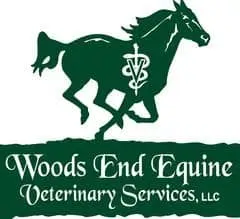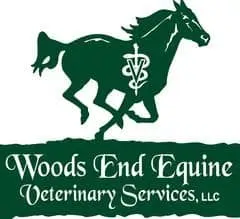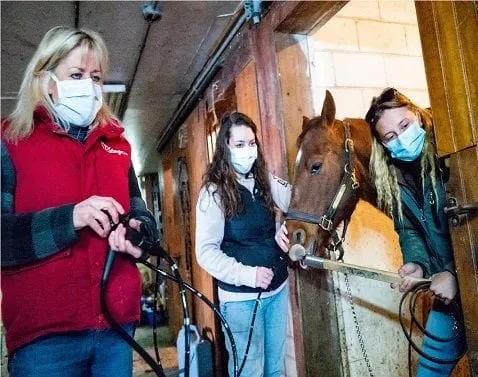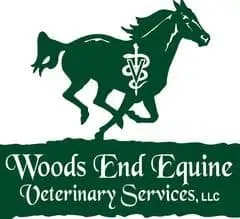Unfortunately, ulcers are common issues in horses. The only way to diagnose your horse with ulcers is to have a gastroscopic exam performs. Dr. Laurie encourages owners to look for any signs of an issue so we can promptly perform an exam and your horse can receive the care they need.
General Information About Equine Gastroscopy
Gastroscopy is a procedure where Dr. McGaughran inserts a 3 meter, tube with a small camera on the end of it. As our team guides the endoscope through your horse's nose and into the stomach.
Once the tube is in your horse's nose, Dr. McGaughran inserts it into the back of your horse's throat. Then, he or she swallows the tube and it goes through the esophagus and into the stomach. The camera is used to capture images of the inside of your horse's upper GI tract.
Fasting for Gastroscopy
Dr. McGaughran will discuss with you what you need to do for your horse prior to his or her procedure. For instance, your horse will need to fast for 12 hours before having gastroscopy. He or she may not have any food/water. For more information please visit our online forms on our website.
Once our vet finishes the procedure, you may feed him or her in about 30 minutes to an hour afterward.
How Your Horse Feels During Gastroscopy
The procedure isn't painful for your horse. He or she receives a mild sedative to ease the discomfort. As a result, the insertion of the tube only feels like a tickling sensation.
What Gastroscopy Can Diagnose
Gastroscopy is a procedure our vet uses to diagnose ulcers and any other abnormalities. We can determine the level of severity the ulcers are(if present) and or biopsy anything we see in the upper GI. Additionally, Dr. McGaughran can use it to diagnose, tumors, and other upper GI tract problems.
Treating Issues After Gastroscopy
After our practitioner confirms any issue, your horse will receive treatment.
For ulcers, the FDA treatment is Omeprazole. Omeprazole, sold under the brand name Gastrogard. It is a protein pump inhibitor. It reduces the amount of acid your horse's stomach produces. Omeprazole is the only proven treatment that can treat stomach ulcers. Dr. McGaughran will educate you about the ideal diet to help manage the acid in your horse's stomach. Usually, this is a high-fiber diet(alfalfa). In addition, you receive information about a proper feeding and exercise schedule that can assist.
If cancer is suspected, we will recommend additional testing and will help you determine the best course of action for his or her needs.
We can help your horse get back to feeling like his or herself.
To learn more about a gastroscopy procedure for your horse, or to schedule an appointment, contact Woods End Equine Veterinary Services today at (973) 209-4994.



